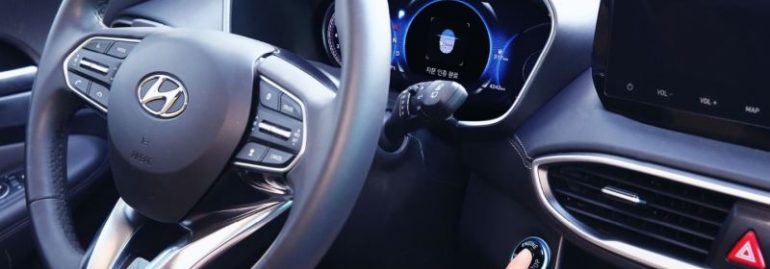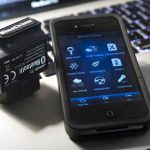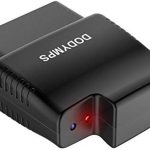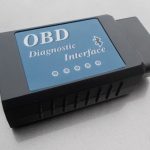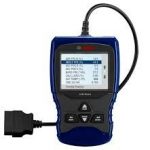There was a time when anyone could fix their own car. You would just need to open up the hood, get familiar with what’s there and start to work towards resolution.
Millions of mechanics from the past would agree. DIY methodology on older model vehicles used to be the thing to do, and many home mechanics worked on their own vehicles, changed out parts, and fine-tuned the way that their engines worked over time.
But here’s the thing, times have change. Since the mid-1990s, all vehicles have an electronic component that is more akin to a computer system than it is to anything you’ve seen in the past.
With that in mind, you’ll find that you’ll need to look into getting a tool from the professionals.
That is a device known as a car diagnostic tool. This is a simple solution that pulls a great deal of data that will tell you whether or not you have an issue with your car. If there’s a problem, you’ll get a code that tells you what’s going on.
Before you go and purchase any tool, you’ll need to first understand which is the “right” solution for you. If you ask yourself a few questions before hand, you’ll be able to narrow down the selection.
If you’re going to work with a car diagnostic tool, you’ll need to answer the following questions, and then start the search for the correct solution for your overall needs. Once done, you’ll have a tool that will work for your vehicle, and could very well help you figure out what is wrong, how to tune things, and what changes can be made after the fact.
Understand How OBD Tools Work
First and foremost, consider how a traditional OBD option works. You’ll find that you can connect the tool to your vehicle’s mainframe through Bluetooth, a smartphone, or even a tablet.
Most cars have a small area underneath the steering wheel or the dash that can help with this solution. Even beginner solutions have “user friendly” updates that will let you start working with the device immediately.
Once attached, you can pull data and relay an answer to the bigger issue at hand. Either way, you’ll find that once you understand how these tools work, you’ll be able to narrow down the field a bit.
Set A Budget
Moving forward, you’ll need to have a budget in mind. How much do you want to spend on a device of this type?
There are many options that start at under $100. You can easily pay less than $100 and even less than $50 in some instances. However, you’ll need to understand that these are no-frills, basic options.
They may not be updated, they may not work with Bluetooth, and may not work with wireless internet connections.
Setting a budget for a bit over $100 is a good idea if you’re going to want to purchase an expert solution, but you’ll need to have a modest budget that is a bit flexible.
Going cheap on your first option is ok, but over time, you’ll want to invest in getting tools that are a bit more expensive and therefore more finely tuned.
Look For Reviewed Solutions
As you look for the best car diagnostic tool for your needs, make sure that you start to read reviews on each option.
There are reviews on every OBD2 solution on the market, and even the new ones are starting to get talked about.
Read the positive reviews, but also read the negative ones as well. Look for reviewed solutions and understand that they may or may not work for your car.
You’ll need to know the make and model of your vehicle, and in some instances the manufacturer’s codes etc.
Read reviews through ecommerce stores, and read forums to ensure that you have a good overall focus on the positive and negatives of each option.
Do not purchase anything that doesn’t have at least one review. The more reviews, the better the information will be for you to understand. Do not skip on this.
Professional Grade Options
If you’re serious about fixing your car, and you want to keep it running for years to come, you may want to look for professional grade scanners.
Diagnostic tools that mechanics use on a regular basis could cost you upwards of thousands of dollars.
In some instances, you may have to pay over $5,000 for a good solution that is professional grade.
Before you go this route, make sure that you get one that is compatible with your make and model car.
Then make sure that you understand how to use the device, and be ready to upgrade the software, and get comfortable with the solution.
You’ll find that professional grade options are going to cost you a great deal, but will also have a steep learning curve to ensure that you’re able to work with it.
Mechanics use professional, expensive tools and then help people with their vehicles after the fact.
Start With The Basic and Build Up
The best thing that you can do when you’re not sure which diagnostic tool is best for you is to buy a basic option.
Once you purchase a basic solution, you’ll get familiar with the way these tools work. If you get comfortable with it, you can always get an upgraded option.
Do not purchase a solution that is expensive, right away. Take your time, read reviews, and understand how the codes and data structure works.
Once you know that, you’ll be able to build on the right components, and get the right tool for the future of your vehicle.
Right now, a lot of OBD2 software options exist, as well as handheld solutions, smartphone options, and tablet apps as well.
There are advantages to all of them, but you’ll find that your best bet is to go with a basic solution first.
Once you’re used to work with these and fixing minor things with your car, then you’ll be able to upgrade and get better overall traction with your vehicle’s repair, tuning, and of course, diagnostics.


